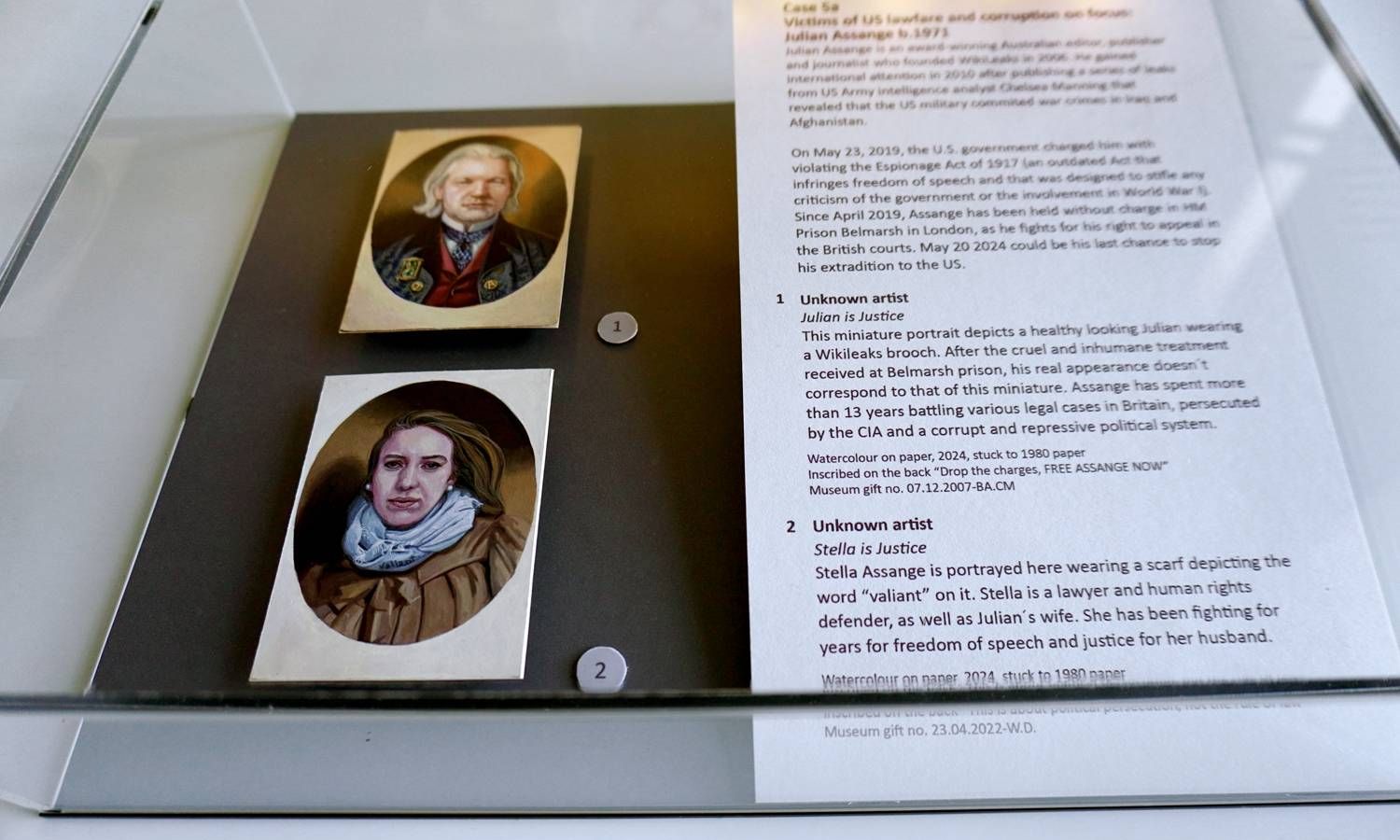The label on the works said ““This miniature portrait depicts a healthy looking Julian wearing a Wikileaks brooch… Assange has spent more than 13 years battling various legal cases in Britain.” Stella Assange, meanwhile is described as “fighting for years for freedom of speech and justice for her husband”
Hand-painted portraits of the headline-hitting whistleblower Julian Assange and his wife Stella were sneaked into the Victoria and Albert Museum (V&A) in London and remained on display for a day before museum staff spotted the new additions. The works, which even had their own labels and museum exhibit numbers, were surreptitiously placed in Room 90A—a gallery dedicated to historic portraiture.
The cheeky stunt happened 29 April, ahead of a hearing at the High Court in London 20 May when judges ruled that Assange could appeal against his extradition to the US on charges of leaking military secrets.
In an anonymous email (talk about intrigue), the artist(s) behind the audacious intervention says that “two original miniature hand painted portraits of Julian and Stella Assange were painted and clandestinely introduced in the museum, in a perspex box, with a light strip, timer and corresponding exhibit label”. The label reads: “This miniature portrait depicts a healthy looking Julian wearing a Wikileaks brooch… Assange has spent more than 13 years battling various legal cases in Britain.” Stella Assange, meanwhile, is described as “fighting for years for freedom of speech and justice for her husband”.
“The museum has confirmed they found the artwork and removed it but they have remained silent publicly and haven´t informed about what they intend to do with [it]… we have evaluated that [the museum] could adopt it as part of its miniature portraits collection,” says the brazen anonymous informant.
In a statement to The Art Newspaper, the V&A said: “The Julian Assange material was discovered in our Portrait Miniatures display prior to the museum opening on Tuesday 30 April and removed from the gallery on the same day.”
A spokesperson for the V&A told The Art Newspaper that the miniatures were discovered prior to the museum opening and removed from the gallery.

